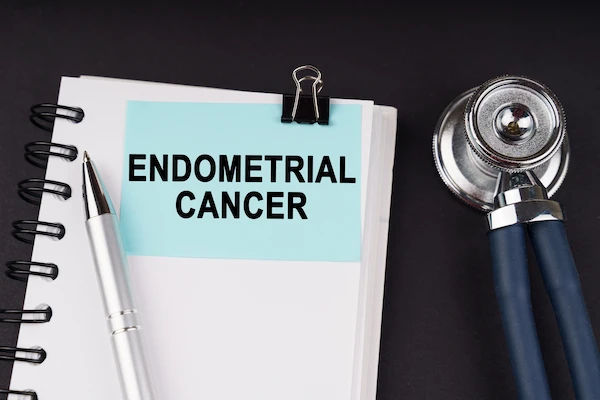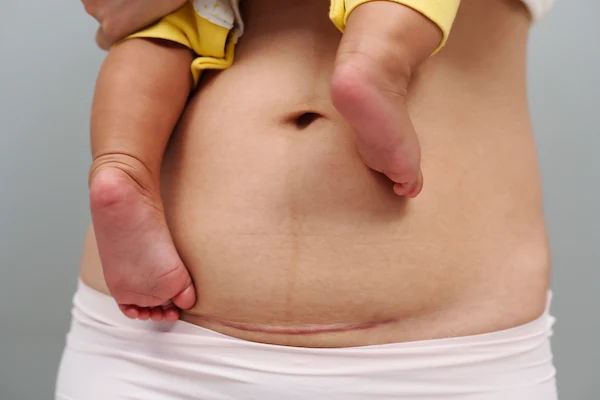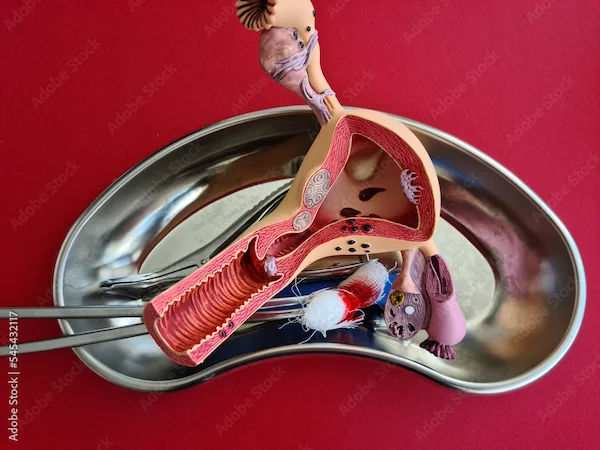Hysterectomy Without Ovary Removal
Considering a hysterectomy but keeping your ovaries? Learn what to expect, the benefits of ovarian preservation, and how it affects recovery and long-term health.

Written by Dr.Sonia Bhatt
Last updated on 8th Jul, 2025

Introduction
If you or a loved one has been advised to undergo a hysterectomy, you may have questions about what it means, especially if the ovaries are not being removed. A hysterectomy is a common surgical procedure, but understanding the details can help ease concerns and prepare you for recovery.
This article explains what a hysterectomy without ovary removal involves, why it might be recommended, its benefits, and how to manage life afterward.
What Is a Hysterectomy Without Ovary Removal?
A hysterectomy is a surgery to remove the uterus (womb). Depending on the reason for the surgery, the doctor may also remove the cervix (the lower part of the uterus). However, in some cases, the ovaries are left intact.
Types of Hysterectomy
Here are the main types of hysterectomy, based on what is removed:
1. Total Hysterectomy – Removal of the uterus and cervix.
2. Supracervical (Partial) Hysterectomy – Only the upper part of the uterus is removed, leaving the cervix.
3. Radical Hysterectomy – Removal of the uterus, cervix, and surrounding tissues, usually performed for cancer treatment.
If the ovaries are not removed, the procedure is called a hysterectomy with ovarian preservation.
Consult Top Specialists for Personalised Health Advice
Why Is a Hysterectomy Performed Without Removing the Ovaries?
Doctors may recommend keeping the ovaries if:
You are premenopausal – Removing ovaries before menopause can trigger early menopause, leading to hormonal changes.
No ovarian disease – If there’s no cancer, cysts, or other ovarian issues, keeping them helps maintain natural hormone production.
Lower risk of long-term health issues – Ovaries produce estrogen and progesterone, which help protect bones, heart health, and sexual function.
Common Reasons for a Hysterectomy
A hysterectomy may be needed for conditions such as:
Uterine fibroids, non-cancerous growths causing pain or heavy bleeding.
Endometriosis, when uterine tissue grows outside the uterus.
Adenomyosis, thickening of the uterine wall.
Chronic pelvic pain that doesn’t improve with other treatments.
Uterine prolapse, when the uterus slips into the vaginal canal.
Cancer, uterine, cervical, or ovarian.
Benefits of Keeping the Ovaries
Keeping the ovaries during a hysterectomy may offer several health advantages.
1. Natural Hormone Production – Ovaries continue producing estrogen and progesterone, preventing early menopause symptoms like hot flashes, mood swings, and bone loss.
2. Heart and Bone Health – Estrogen helps protect against osteoporosis and heart disease.
3. Better Sexual Health – Some women report better sexual function when ovaries are preserved.
What to Expect After Surgery?
Understanding what recovery looks like after a hysterectomy with ovarian preservation can help you prepare both physically and emotionally.
1. Recovery Time
Hospital stay: 1-2 days (if laparoscopic) or 3-5 days (if open surgery).
Full recovery: 4-6 weeks (avoid heavy lifting, exercise, or sex until cleared by the doctor).
2. Possible Side Effects
Pain and discomfort
Vaginal bleeding or discharge
Fatigue
3. Long-Term Effects
No periods – Since the uterus is removed, menstruation stops.
No pregnancy – A hysterectomy is permanent birth control.
Ovaries may still function – If kept, they continue releasing eggs until natural menopause.
Life After Hysterectomy (With Ovaries Intact)
Keeping your ovaries during a hysterectomy may influence how your body adjusts in the months and years that follow.
1. Hormonal Changes
If ovaries are preserved, menopause will occur naturally later.
Some women may experience temporary hormonal fluctuations after surgery.
2. Lifestyle Adjustments
Healthy diet – Focus on calcium and vitamin D for bone health.
Regular exercise – Helps with recovery and overall well-being.
Pelvic floor exercises – Strengthening pelvic muscles can help with bladder control.
3. Emotional Well-being
Some women feel relief from chronic pain or heavy bleeding.
Others may experience sadness or anxiety about losing their uterus – talking to a counsellor can help.
When to Consult a Doctor
Seek medical advice if you experience:
Severe pain, fever, or heavy bleeding after surgery.
Signs of infection, like redness, swelling, or foul-smelling discharge.
Sudden mood swings or severe hot flashes, which could indicate ovarian issues.
Final Thoughts
A hysterectomy without ovary removal can be a life-changing procedure for women suffering from chronic uterine conditions. By preserving the ovaries, many women avoid early menopause and maintain better long-term health.
If you’re considering this surgery, discuss all options with your doctor to make an informed decision. At Apollo 24|7, you can book a consultation with expert gynaecologists who can guide you through the process.
Consult Top Gynaecologists
Consult Top Specialists for Personalised Health Advice

Dr. Sridevi Matta
Obstetrician and Gynaecologist
28 Years • MS ( OBG ), DGO, DNB Obstetrics & Gynaecology
Chinagadila
Apollo Hospitals Health City Unit, Chinagadila
(175+ Patients)

Dr. Asha Rani Singh
Obstetrician and Gynaecologist
24 Years • MBBS DGO
Delhi
Dr Asha Rani Singh Clinic, Delhi

Dr. Ramya G S
Obstetrician and Gynaecologist
11 Years • MBBS, DGO - Obstetrics & Gynaecology, DNB - Obstetrics & Gynaecology
Bengaluru
Apollo Clinic, JP nagar, Bengaluru

Dr. Mona Yadav
Obstetrician and Gynaecologist
19 Years • MBBS, MD (Obstetrics & Gynaecology)
Dombivli
Nulife multispeciality, Dombivli

Dr. Harshitha B R
Obstetrician and Gynaecologist
11 Years • MBBS, DGO( OBS & GYN)
Bengaluru
Apollo Clinic, JP nagar, Bengaluru
Consult Top Gynaecologists

Dr. Sridevi Matta
Obstetrician and Gynaecologist
28 Years • MS ( OBG ), DGO, DNB Obstetrics & Gynaecology
Chinagadila
Apollo Hospitals Health City Unit, Chinagadila
(175+ Patients)

Dr. Asha Rani Singh
Obstetrician and Gynaecologist
24 Years • MBBS DGO
Delhi
Dr Asha Rani Singh Clinic, Delhi

Dr. Ramya G S
Obstetrician and Gynaecologist
11 Years • MBBS, DGO - Obstetrics & Gynaecology, DNB - Obstetrics & Gynaecology
Bengaluru
Apollo Clinic, JP nagar, Bengaluru

Dr. Mona Yadav
Obstetrician and Gynaecologist
19 Years • MBBS, MD (Obstetrics & Gynaecology)
Dombivli
Nulife multispeciality, Dombivli

Dr. Harshitha B R
Obstetrician and Gynaecologist
11 Years • MBBS, DGO( OBS & GYN)
Bengaluru
Apollo Clinic, JP nagar, Bengaluru




